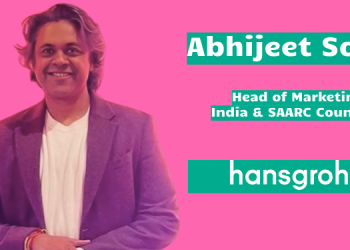The global education landscape is in the middle of an expansive transformation, with the preferences of students and parents alike rapidly changing. Marketing in the education space has transformed as well to keep up with the changing times. In today’s digital era, educational marketing has become increasingly sophisticated, leveraging new technologies and innovative approaches to engage prospective students and their families. There are some key trends in the mix that are propelling educational marketing to new heights, which every forward-looking school and college should incorporate into their strategy to attract new students.
Personalised Marketing
One of the most powerful trends in educational marketing is the shift towards personalisation. Institutions are now employing key marketing tools like data analytics to gain insights into prospective students’ preferences, behaviours, and needs. By tracking key performance indicators (KPIs) such as engagement rates, application numbers, and enrollment figures, schools can refine their marketing efforts to maximise impact and return on investment. This allows for the creation of highly personalised campaigns that resonate on an individual level for a variety of different students. From tailor-made email campaigns and targeted social media ads to customised landing pages, personalisation helps build a deeper connection with potential students, increasing the likelihood of conversion.
Artificial Intelligence
Studies have found that 73% of marketing professionals are now using Artificial intelligence (AI) as part of their educational marketing campaigns. AI-powered chatbots, for example, can provide instant, 24/7 responses to inquiries, significantly enhancing the user experience. These chatbots can be programmed to handle a wide range of tasks, from answering frequently asked questions to guiding students through the application process. AI can even be used to create virtual reality (VR) campus tours for international students, etc. Harnessing AI can help educational institutions provide timely and accurate information, ensuring that no potential lead is left unattended.
Emphasis on Storytelling
Content marketing remains a cornerstone of educational marketing strategies. However, the focus is increasingly moving to be on storytelling, which involves creating compelling narratives that highlight the unique aspects of an institution. By sharing success stories, student testimonials, and faculty achievements, institutions can create an emotional connection with their audience. Video content, in particular, has proven to be highly effective in engaging prospective students, offering a dynamic and immersive way to showcase campus life, academic programs, and extracurricular opportunities. In fact, reports have even shown that 92% of students prefer and enrol in schools that showcase themselves through video content. Educational institutions of all sizes can invest in storytelling in order to appeal to a wider array of students.
Social Media Engagement
Social media has been a critical platform for educational marketing, and will continue to be so. Beyond merely having a presence on platforms like Facebook, Instagram, and LinkedIn, educational institutions are now leveraging advanced social media strategies to engage with their audience. Live streaming events, interactive polls, and user-generated content campaigns are just a few examples of how schools and colleges are fostering a sense of community and engagement. Additionally, influencer marketing is also gaining traction in the education sector, with institutions partnering with current students and alumni to authentically promote their brand.
Diversity and Inclusion
As global awareness of social justice issues continues to rise, educational institutions are increasingly prioritising diversity and inclusion in their marketing efforts. Highlighting diverse student bodies, inclusive campus cultures, and support for underrepresented groups can attract a broader range of applicants. Institutions are also creating marketing materials in multiple languages and featuring international student experiences to appeal to a global audience.
Conclusion
The landscape of education is undergoing significant transformation, especially with the integration of personalised marketing approaches and the added focus on storytelling and inclusivity. By staying abreast of these global trends, educational institutions can effectively navigate the competitive educational marketing landscape, attracting and retaining students in an increasingly digital world. Educational institutions that embrace these trends and adapt to the evolving needs and expectations of students will be best positioned for success.

















